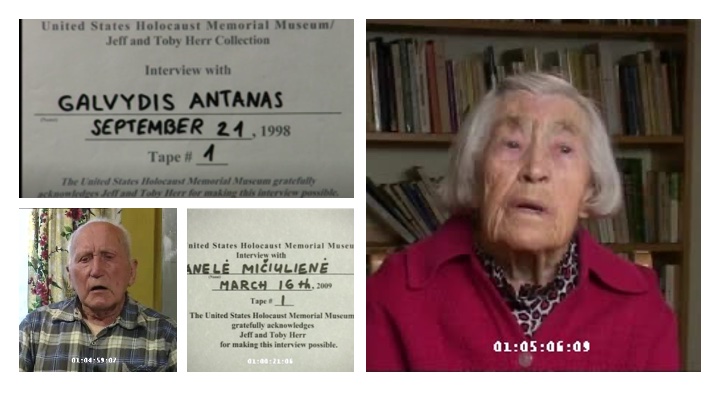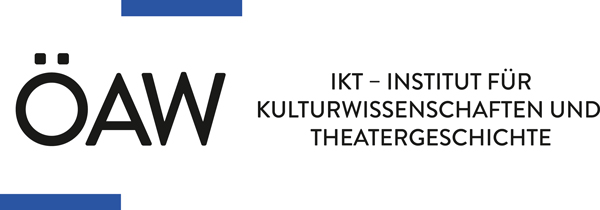VWI goes to ... / VWI invites ...
Der Kolloquienzyklus der VWI-Fellows
Die VWI-Fellows präsentieren Zwischenresultate ihrer Forschungsvorhaben im Rahmen von Kolloquien, die – im kleinen Rahmen angekündigt – auch einer akademisch und inhaltlich interessierten Öffentlichkeit zugänglich sind. Die Vorträge werden durch eine im jeweiligen Thema ausgewiesene Fachperson in Form einer Respondenz oder eines Kommentars begleitet und von den anderen Fellows und dem Publikum diskutiert.
Das Veranstaltungsformat VWI goes to … war ursprünglich aus akutem Raummangel geboren worden, konnte doch das Institut an seinem früheren Standort, am Desider-Friedmann-Platz nicht einmal eine kleine Veranstaltung organisieren. Allein aus dem Kontakt zu anderen akademischen Einrichtungen in Wien, zum Teil auch in der weiteren Region, ergab sich in der Folge – auch dank der jeweils eingeladenen Kommentatorinnen und Kommentatoren – wiederum die einzigartige Möglichkeit, die Fellows und die Forschungen des VWI mit anderen Institutionen, methodischen Ansätzen, Forschungsfragen und Ideen zu vernetzen, das Institut in den regionalen Forschungsraum noch mehr zu integrieren. Aus diesem Grund wurde entschieden, das Format auch am neuen Standort beizubehalten. Gleichzeitig eröffnete sich aber am Rabensteig auch die Gelegenheit, zu diesen Kolloquien Institutionen auch an das VWI einzuladen. Aus diesem Grund trägt ab Herbst 2016 das VWI-Kolloquium entsprechend alternierend auch die Bezeichnung VWI invites... .
| VWI invites/goes to... | |||
| Violeta Davoliūtė: The Holocaust Perpetrator in Local Memory. Case Studies from Lithuania in European Perspective | |||
Mittwoch, 11. Jänner 2023, 16:00 - 18:00 Austrian Academy of Sciences, Dr. Ignaz Seipel-Platz 2, 1010 Vienna, 1st floor, Sitzungssaal
|
|||
VWI goes to the Institute of Culture Studies and Theater History (ÖAW/IKT)
Commented by Ljiljana Radonić Violeta Davoliūtė, Senior Fellow at the VWI, Professor at the Institute of International Relations and Political Science, Vilnius University, Senior Researcher at the Lithuanian Institute of History, and the coordinator of the Horizon Europe Twinning project entitled Facing the Past: Public History for a Stronger Europe (2022-2025). A graduate of Vilnius University, she completed her M.A. and Ph.D. at the University of Toronto. A specialist in cultural memory and social trauma, she has published extensively on these topics with a focus on the Baltic States and East-Central Europe. In recent years she has been a visiting scholar at Imre Kertész Kolleg Jena, Yale University, EHESS, and Uppsala University. Ljiljana Radonić is the vice-director of the Institute of Culture Studies and Theatre History of the Austrian Academy of Sciences in Vienna and heads an ERC project entitled “Globalized Memorial Museums. Exhibiting Atrocities in the Era of Claims for Moral Universals” there. She wrote her habilitation on World War II in Post-Communist Memorial Museums at the Department of Political Science at the University of Vienna. Her PhD dealt with the “War on Memory. Croatian Memory Politics between Revisionism and European Standards”, Frankfurt 2010. Photo: United States Holocaust Memorial Museum Collection, courtesy of the Jeff and Toby Herr Foundation Click here to download the invitation as PDF file. In cooperation with:
|
|||






 The outbreak of communal violence against Jews catalysed by the German invasion of the USSR continues to raise controversy. Research on the testimonies of Jewish survivors and previously inaccessible Soviet archives have increased our understanding, but the perspective of non-Jewish eyewitnesses on the violence is less well known. This project surveys under-researched collections of audio-visual testimonies of non-Jewish witnesses to genocide in the provincial towns and villages of Lithuania. They diverge from mainstream narratives of the Second World War in their concern with local context, agency and individual accountability. While the memory of the Holocaust has been externalised under prior memory regimes, these testimonies may serve as an important resource for historical understanding and reckoning.
The outbreak of communal violence against Jews catalysed by the German invasion of the USSR continues to raise controversy. Research on the testimonies of Jewish survivors and previously inaccessible Soviet archives have increased our understanding, but the perspective of non-Jewish eyewitnesses on the violence is less well known. This project surveys under-researched collections of audio-visual testimonies of non-Jewish witnesses to genocide in the provincial towns and villages of Lithuania. They diverge from mainstream narratives of the Second World War in their concern with local context, agency and individual accountability. While the memory of the Holocaust has been externalised under prior memory regimes, these testimonies may serve as an important resource for historical understanding and reckoning.